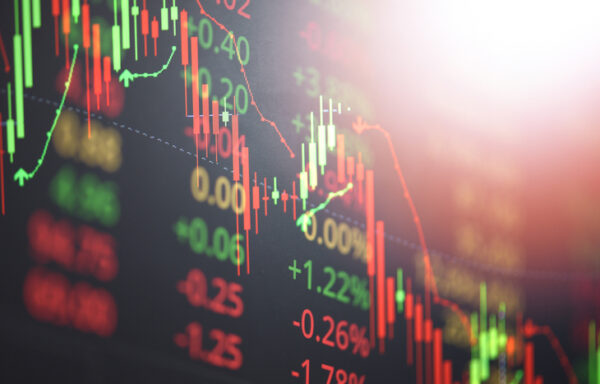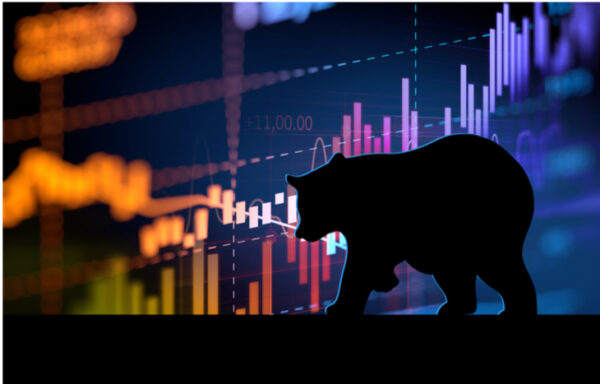Dusk Crypto: Why Investors Should Consider Getting in Now
The network behind Dusk crypto was founded in 2018. So it doesn’t quite fit into the category of the next generation cryptocurrencies. And it came long after the originals like Bitcoin, Ripple and even Dogecoin. But it is worth comparing it to some of its contemporaries like Solana, Cardano and Binance.

All of these projects had the somewhat unfortunate luck of launching not long before the big crypto bubble burst in 2018. Since then, a whole lot of tokens have come and gone. But the aforementioned tokens have persevered. They’ve weathered all of the storms that have come and gone in the past five years. And what sets them apart is their use cases.
Back when these projects were launched, there was a rash of initial coin offerings (ICOs). The year 2017 saw an estimated $10 billion raised from ICOs. There were 966 of them. The following year, the number more than doubled. But investors were showing signs of fatigue. Despite the massive influx of ICOs, projects just weren’t raising money like they did the previous year. So in that way, projects born in 2017 got lucky. The ability to raise more cash than the projects that followed helped to keep these projects afloat. Since then, many have flourished. But there are some that survived the crash via belt-tightening and great use cases. And Dusk is one of these.
Why Dusk Crypto Has Room to Grow
At the beginning of 2021, many cryptocurrencies still had yet to realize their worth. The Binance decentralized exchange (DEX) had grown in popularity. But the token powering it still hadn’t realized its true potential. When subsequent DEXs came along, many of them followed Binance’s lead and used BNB as one of the primary trading tokens. From there, Binance crypto (BNB) really began to take off. It shot up more than 1,200% in 2021.
Solana’s story is quite similar. This project set out to revolutionize the crypto market. And it wanted to do so by updating and improving the scalability, transaction fees and confirmation delays in blockchain technology. At the beginning of 2021, it still seemed like a pie in the sky idea. But as the year progressed, the mission began to be realized. Developers took note. Solana became a favorite network to build Web3 apps. It hosts several popular NFT marketplaces. And there are lots of DeFi projects being hosted on it now. All of this interest has raised the value of the Solana crypto (SOL). In one year, Solana crypto has shot up more than 11,500%.
Unlike the two tokens mentioned above though, Dusk crypto has yet to see those rocket-propelled gains. One of the reasons is Dusk isn’t as widely available as BNB and SOL. You can find the latter two on just about any exchange out there. However, the biggest exchanges Dusk is available on is Binance, Bybit and Gate.io. The other thing holding back Dusk for now is its use case has yet to be realized to the extent Binance and Solana have.
The Case for a Long-Term Hold
Dusk crypto is currently trading for about $1 a token. It is up around 150% on the year. But most of that growth was in the last couple weeks of the year. And we think this token is just starting to heat up.
The Dusk network is a so-called blockchain for programmable, private securities. It is powered by zero-knowledge proofs. It is essentially a blockchain that can be used for myriad financial applications.
The team behind the Dusk network has also designed the confidential security contract standard. This can be used in the creation and issuing of privacy-enabled security tokens. This might sound complicated, but to put it as simply as possible, Dusk could very well play a huge role in how security tokens are employed.
A security token is a tradable asset that operates on a blockchain to automatically store and validate transactions. Security tokens are programmable, which can reduce the cost of automation. They also allow for simplified integration by other businesses or developers. They can be an efficient means of completing simple company actions. For instance, they can be used to issue a company’s dividend payments. And they come with automated audit trails. All of this has the possibility of reducing a company’s overhead by a noticeable margin. And it looks like companies are starting to take notice. This bodes well for the future of Dusk crypto.
Transactions using the Dusk network take mere seconds. It also allows decentralized applications built on it to follow strict compliance requirements… All while offering full data privacy. And anyone that possess Dusk crypto is permitted to participate in its consensus.
The Dusk network is in a position to take the business world by storm. And that’s why we think the token that powers it is poised to rise.
The Bottom Line on Dusk Crypto
All investments are inherently risky. That being said, the likelihood of the bottom falling out from under Apple (Nasdaq: AAPL) stock is a lot less likely than the bottom falling out of any cryptocurrency. However, the likelihood of Apple’s value tripling (or more) over the next year is low. But the chance of Dusk crypto tripling and trading for a few dollars a token by this time next year is a very real possibility.
As more and more businesses begin to unspool the usefulness of blockchain technology, we’re likely to see another bull run from the crypto markets in 2022. And those that deploy the blockchain for financial records and purposes are likely to employ the Dusk network. And that could mean very big things for this crypto in the long-term.
[adzerk-get-ad zone="245143" size="4"]About Matthew Makowski
Matthew Makowski is a senior research analyst and writer at Investment U. He has been studying and writing about the markets for 20 years. Equally comfortable identifying value stocks as he is discounts in the crypto markets, Matthew began mining Bitcoin in 2011 and has since honed his focus on the cryptocurrency markets as a whole. He is a graduate of Rutgers University and lives in Colorado with his dogs Dorito and Pretzel.





